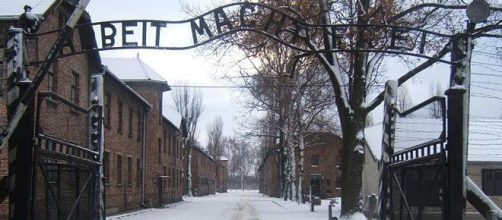Today, around 300 survivors of Auschwitz gathered at the site of the Nazi death camp to mark the 70th anniversary of its liberation. The ceremony, which honoured survivors and the deceased alike, is expected to be the final major anniversary attended by such significant numbers.
Prior to being liberated by Soviet forces on 27 January 1945, a total of 1.1 million people were killed at Auschwitz, with Jews making up the vast majority of victims. Others who met their demise there, and in other camps like it, included disabled people, homosexuals, Gypsies and prisoners of war.
And while the Holocaust is widely recognised as one of humanity's greatest crimes, speakers at the event warned that anti-Jewish sentiment remains a serious threat within Europe; a view recently supported by the likes of Theresa May and Manuel Valls, as well as by evidence of increased anti-Semitism across the continent.
Ronald S. Lauder, president of the World Jewish Congress, was especially clear in delivering a warning message to those in attendance.
"Jews are targeted in Europe once again, because they are Jews," he said. "Once again young Jewish boys are afraid to wear yarmulkes on the streets of Paris, Budapest, London and even Berlin. World silence led to Auschwitz. Do not let this happen again."
The dwindling number of Auschwitz survivors is perhaps best demonstrated by comparing today's event to the 60th anniversary commemorations, which took place ten years ago.
On that occasion, some 1,500 were in attendance.
Many of the 300 who gathered to mark the 70th anniversary are in their 80s or 90s and suffering from ill-health. Sadly, a number of survivors who had originally planned to attend were eventually unable to, either as a result of serious illness or death.
"This is the last time we'll have such a prominent survivor presence, so we've made a special effort to get them here," Lauder explained. "Many of them will no longer be with us for the 75th [anniversary]."
It is precisely for this reason that younger generations must accept the responsibility of preserving the memory of what happened at Auschwitz and other concentration camps during the Holocaust.
Steven Spielberg, who helped bring the story to a wider audience with his film Schindler's List, referred to this as the formation of a "meaningful collective conscience," which would serve future generations and help to prevent a repeat of the atrocities.
This task of forming a collective memory can be aided by people reading, listening to and sharing stories about the horrific crimes perpetrated by the Nazis, by creating and consuming art based on the subject, and by donating money to help preserve places like Auschwitz, which provide tangible evidence of exactly what hateful ideologies can lead to.
In the words of Henry Appel: "There is only one thing worse than Auschwitz itself, and that is if the world forgets there was such a place."

